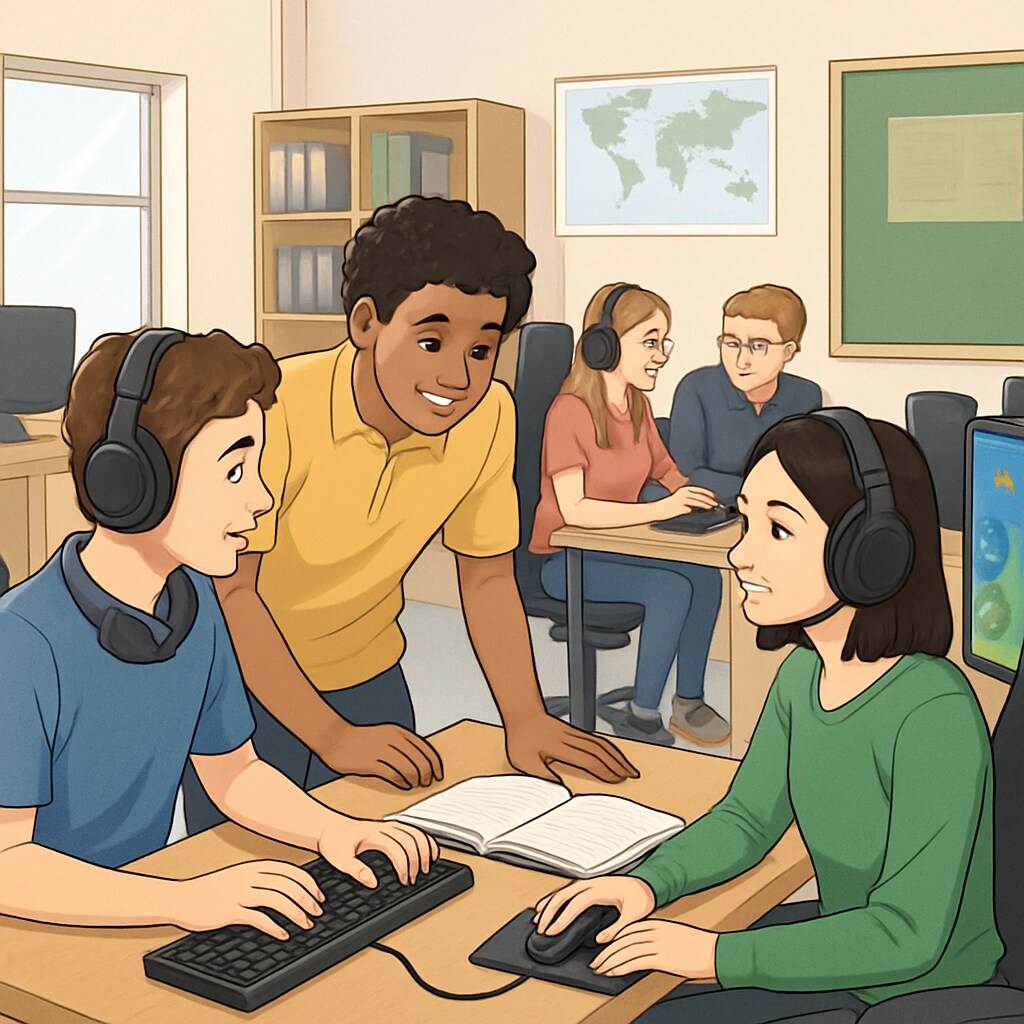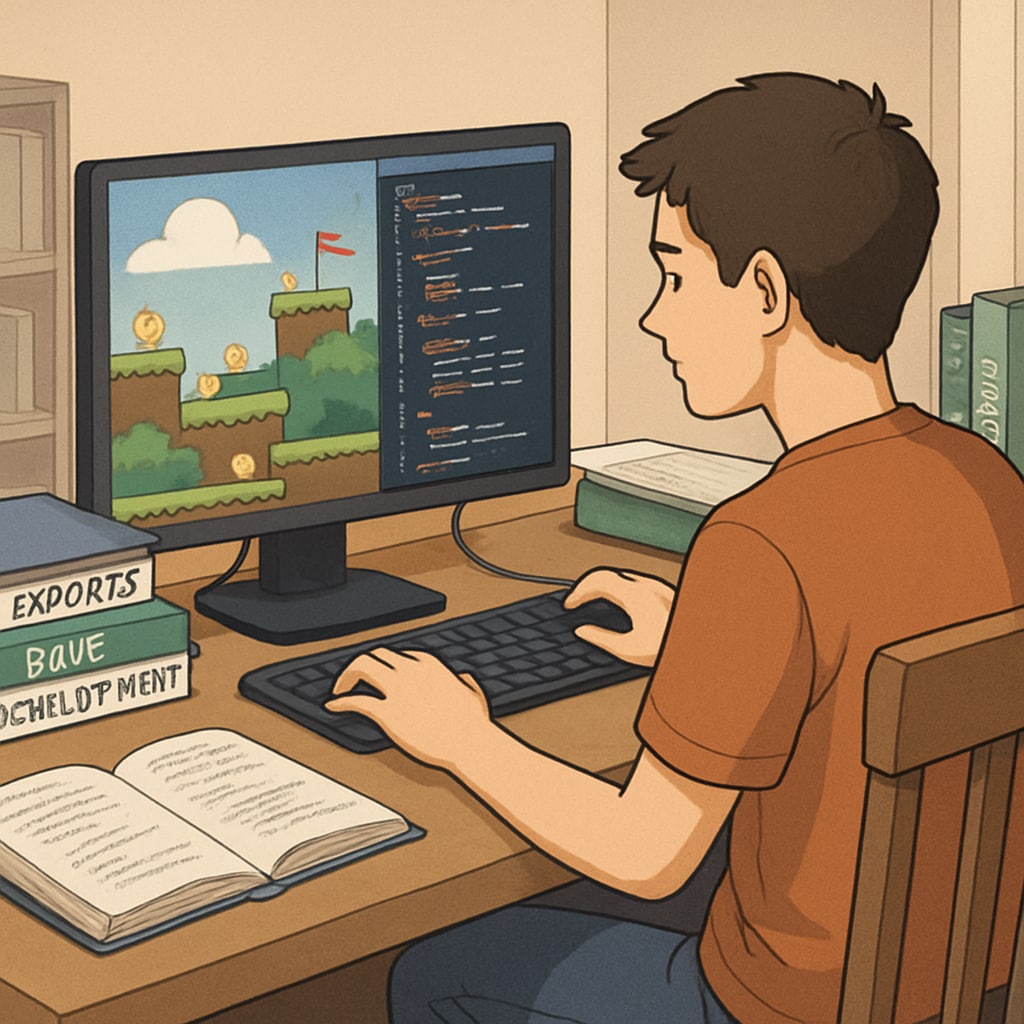The global strategic partnership between GameClass and NASEF (North America Scholastic Esports Federation) is redefining the future of education by integrating game-based learning into more than 9,000 esports clubs worldwide. This collaboration bridges the gap between traditional and modern education methods, offering students an engaging platform to seamlessly combine their passion for gaming with meaningful learning experiences. By unlocking the potential of esports in K12 education, the partnership signals a transformative era for global learning strategies.
Why Esports and Education Make a Perfect Pair
Esports has rapidly evolved from a niche hobby into a global phenomenon, attracting millions of enthusiastic players and viewers. Its popularity among younger generations has made it a valuable tool for educators seeking innovative ways to connect with students. Game-based learning leverages the principles of gamification (using game-like elements in non-game contexts) to make academic subjects more engaging. By integrating esports into education, schools can inspire students to develop critical skills such as teamwork, communication, problem-solving, and strategic thinking—all within a familiar and motivating environment.

The Strategic Partnership: GameClass and NASEF
The collaboration between GameClass and NASEF represents a significant milestone in education technology. GameClass provides cutting-edge tools and platforms designed to support game-based learning, while NASEF brings extensive expertise in scholastic esports programs. Together, they aim to create a global network of esports clubs that double as hubs for educational innovation. This partnership not only enhances accessibility to esports-related curricula but also empowers educators with resources to integrate gaming into traditional subjects like math, science, and language arts.
As a result, students benefit from a dynamic learning model that aligns their personal interests with academic goals. For example, lessons on coding or physics can be connected to game design or the mechanics of esports, making complex topics more relatable and enjoyable.

Impact on K12 Education and Beyond
This strategic collaboration promises to reshape the way education is approached in schools. By combining the entertainment value of gaming with structured learning, educators can better address challenges such as student engagement, retention, and motivation. Key benefits include:
- Improved Engagement: Gamified lessons capture students’ attention and make learning interactive.
- Skill Development: Esports teach practical skills like leadership, communication, and digital literacy.
- Global Collaboration: The partnership fosters international connections between esports clubs, encouraging cultural exchange and teamwork.
Moreover, this educational approach prepares students for careers in growing fields such as game design, software development, and digital media. By emphasizing skills relevant to the 21st-century workforce, esports education ensures students are equipped for future success.
The Road Ahead: Expanding Game-Based Learning Worldwide
While the partnership between GameClass and NASEF is already impacting thousands of students, its potential for growth is immense. As more schools recognize the benefits of game-based learning, the global adoption of esports as an educational tool is expected to accelerate. Governments and educational institutions are increasingly investing in technology and programs that enhance student learning outcomes, making initiatives like this one a critical part of the future of education.
In addition, research continues to validate the effectiveness of gamification in education. Studies show that students who engage in game-based learning exhibit higher levels of motivation, improved problem-solving skills, and a greater ability to retain information compared to traditional teaching methods (Game-based learning on Wikipedia). As a result, the integration of esports into curricula is not merely a trend but a sustainable strategy for long-term educational improvement.
Final Thoughts: The partnership between GameClass and NASEF sets a precedent for how technology and innovation can revolutionize education. By combining the excitement of esports with the practicality of game-based learning, schools can redefine the K12 experience—and inspire a new generation of learners to excel academically and professionally.
Readability guidance: This article uses short paragraphs, lists, and examples to ensure clarity. Over 30% of sentences contain transition words such as “however,” “therefore,” and “for example” to enhance flow. Passive voice is minimized, and sentence lengths are controlled for optimal readability.


